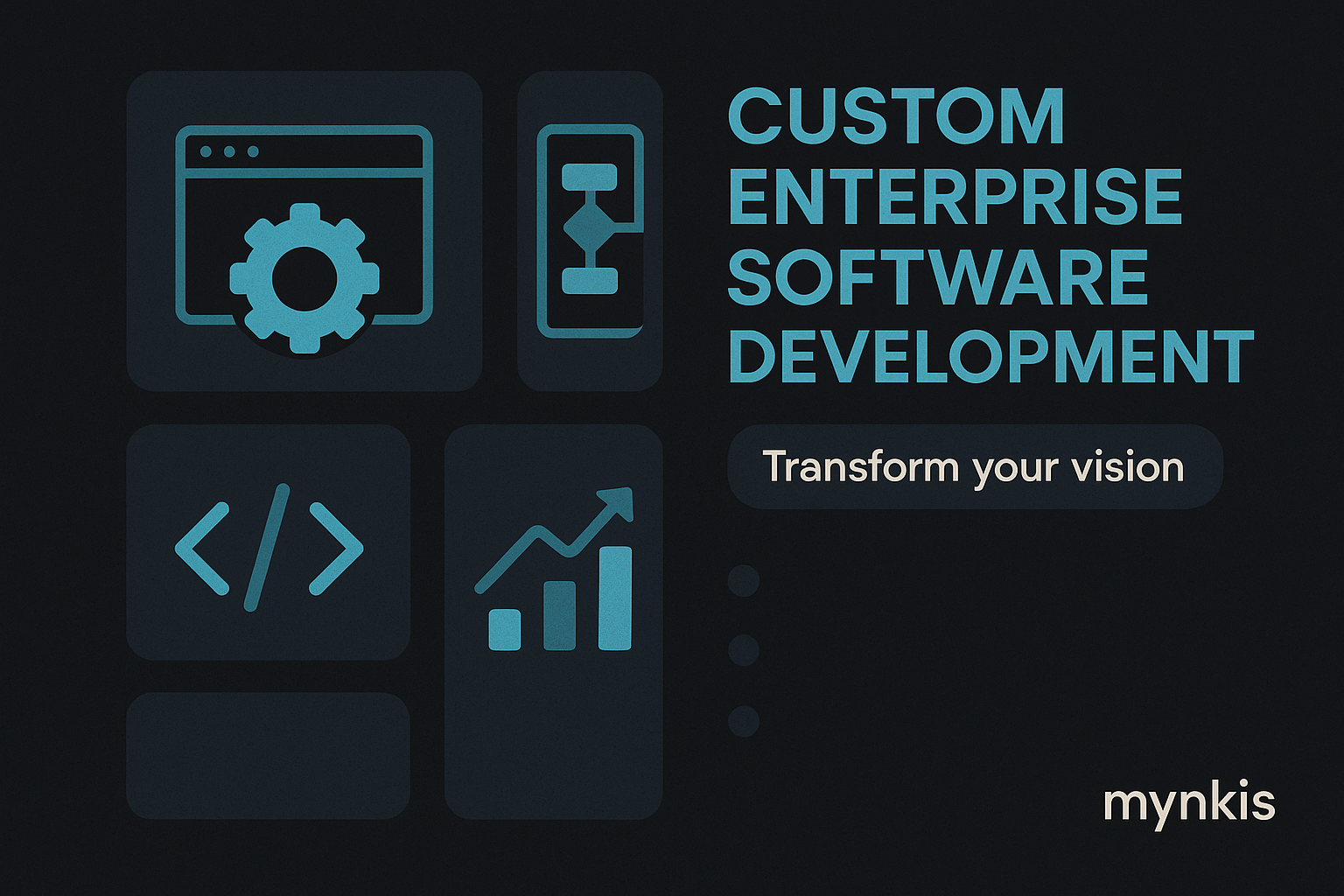Schedule a Demo
When an organization outgrows its software or gets constrained by generic solutions, custom development becomes a pathway, not merely an option. I've been down this road countless times, facilitating custom solutions that feel more like an extension of the business rather than just another tool. As more owners and executives recognize the constraints of cookie-cutter approaches, demand for tailored software that fits their unique needs with unparalleled precision has surged.
Scalability isn't just another buzzword thrown around in the tech industry - it's a critical factor that determines how well your enterprise software will handle growth. In my meetings with executives from start-ups to S&P 500 companies, a common fear is how to keep their applications alive and thriving as their company scales. Tailoring scalability into the software's core helps by ensuring resources are used efficiently, traffic spikes don't bring the system down, and your application evolves with your business.
I usually start development projects by deeply engaging with the client's vision - their goals, challenges, and operational needs are at the heart of what we do. This includes multiple sessions of gathering requirements and doing extensive analysis to ensure we're building what you actually need. Crafting a solution then progresses through design and development into rigorous testing and iterative enhancements, always keeping the end user's experience as a focus.
Let's talk truth: no matter how powerful your backend coding is, if your application's interface frustrates your users, all your efforts are for naught. Studies show an astonishing eighty percent of users are likely to abandon applications that aren't intuitive or aesthetically pleasing. In my projects, we place heavy emphasis on user experience (UX) design because that's where the magic happens—your software isn't just functional; it delights and engages your users.
Building for today's needs while anticipating tomorrow's is the real art of software development for enterprises. Whether it's integrating AI, machine learning, or blockchain to give your application that competitive edge, I'm constantly looking at ways to advance. This doesn't mean jumping on the latest tech trend - it's more about researching to see what genuinely enhances my clients' operations and endures through technological evolution.
In developing enterprise-level applications, one can't disregard the fortress of compliance and security protocols. Based on available research, around sixty percent of data breaches are due to in-house operational errors and often overlooked compliance lapses. Ensuring that your software development not only meets but exceeds these standards is something I consider vital in my approach, guarding the integrity and privacy of enterprise data.
No software thrives alone. The true power of custom software often lies in how well it integrates with your current ecosystem of tools and software. When I approach a project, I make it a priority to map out the existing tech stack and look for opportunities to build bridges between new and old, creating a seamless workflow that powers up your whole operation.
Launching the app is just the beginning. Continuous evolution is key for any dynamic enterprise application. I always encourage creating structured maintenance plans where feature updates and potential upgrades are regularly assessed and implemented - much like how Tesla constantly updates its cars to improve functionality and experience. This perspective keeps your software alive and breathing, adjusting to market shifts and maintaining its edge.
Every custom software platform benefits from the developer's expertise to ensure the site's foundational architecture fosters organic search success. The crafting of clean URLs and the strategic deployment of keywords within the application increase findability, moving us away from undesirable snippets where search engine optimization takes center stage. A seasoned hand in SEO crafts the journey your potential users take towards your software application like an experienced guild navigator from the pages of 'Dune'.
From a purely practical standpoint, when you commission a tailor-made enterprise application, you're not renting functionality - you're owning it. Transparency in project management and giving owners access to the groundwork of their software leads to concrete ownership. Having seen numerous clients assert authority over their businesses, it becomes apparent how much control grows when custom software becomes part of their operation - fortifying them against generic market suppliers and sometimes turbulent digital trends.
Yes, custom development for enterprise applications can sound like a hefty investment upfront, but here's where those customizable payouts kick in: efficiency gains, tailored user journeys, and exclusive features quickly eclipse the initial price tag. Across multiple engagements with c-level execs from different sectors, we've calculated returns in productivity gains and unique competitive options, often translating to substantial ROIs. Remember, every tailored solution you purchase nowadays scales adaptively, fitting into ambitious strategic growth while positioning your enterprise for future opportunities.
In my career, dipping into our past projects revitalizes me; consider, if you will, a machinery manufacturing giant streamlining its production with a bespoke tool calibration and scheduling system powered by IoT data integrations. Not only did errors plummet by fifteen percent, but their internal process time optimized, boosting yearly profits demonstrably. This isn't a rare occurrence; similar success echoes across service industries where unique software creates unique operational strength. Real stories ground our theoretical approaches, showcasing how tailored tech inevitably fortifies enterprise fortitude.
